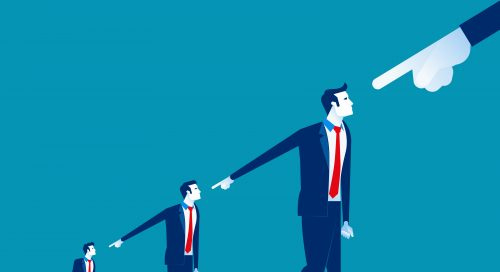“It’s very simple, and the days of rule by unelected bureaucrats are over.”
—Donald Trump, joint address to Congress, March 4, 2025
“Unelected” has become the great epithet of our time. Unelected bureaucrats, from low-level employees to the Chairman of the Fed, make decisions that are unaccountable to the public. Unelected judges issue rulings that defy the will of the people. An unelected shadow government crafts regulations that undermine democracy. Most of this rhetoric comes from the right, though the left will sometimes invoke it, typically in the name of pointing out hypocrisy (who elected Elon Musk to take a wrecking ball to government services?).
Such language reflects a crisis of legitimacy in the United States. For well over a century, progressives from have derived their legitimacy from a dual allegiance to democracy and the authority of technical expertise. This is a through line that runs from Woodrow Wilson-styled Progressivism to Franklin Roosevelt’s New Deal to John Kennedy’s New Frontier to key figures in Barack Obama’s cabinet, like Hillary Clinton and Neera Tanden. Though there were structural frictions in an affirmation of popular will and the necessity of expert execution, they were held in equipoise until the 2020s, when we seemed to have witnessed a breakdown.
The experts themselves bear some responsibility for this. Insisting on COVID restrictions except for Black Lives Matter protests, or Ketanji Brown Jackson’s refusal to define what a woman is during her Supreme Court confirmation hearings, documented the ways in which political considerations corrupted presumably objective scientific findings that experts have always said they hold sacred.
But such undermining from within was less damaging than the populist assault from without. Populism has existed in many forms in U.S. history, and has surged from the left as well as the right. But all varieties share a deep suspicion of elite rule—which in our time has been understood as expert rule by pretty much everyone except experts themselves—in the name of the people. In such a paradigm, a graduate degree is simply not sufficient as a basis of authority, and indeed may even be disqualifying. Progressives see unearned wealth as the source of illegitimacy, and in many cases, they’re right. But poor people are less likely to resent the rich than they are those who they suspect, rightly and wrongly, condescend to them—and whose expert credentials are now pretty much only accessible by an ossifying academic aristocracy.
But wait: isn’t progressive paternalism a contradiction in terms? (Down with the patriarchy!) It’s sometimes hard for such people to see how the answer for millions of Americans is no, and they’re not necessarily wrong to think so, especially when one considers that progressive solutions address problems, like neoliberal economics, that progressives themselves helped create. This is why tens of millions of Americans love the idea of crushing Ivy League universities or imposing huge tariffs on foreign countries: there’s a visceral satisfaction in it. You hired all kinds of people illegitimately on the basis of DEI, and now we’re going to fire them! You took away all our jobs, now we’re going to take away yours! To say that all of this is counterproductive and irrational misses the point.
But it only misses the point to a point. Because while populists can be very good at deconstructing the power of the deconstructors, they’re less good at articulating a truly workable form of democratic rule. The fact is that you can’t elect everyone to positions of authority. And getting elected is a different thing from governing. Personally, I think we would be a lot better off if we had more representatives in our government who didn’t hold advanced or even undergraduate degrees (especially since the value of those degrees, economic and otherwise, is increasingly suspect even among those of us in the business of generating them). President Trump was elected twice, but he showed no compunctions about assaulting democracy on the one occasion he didn’t.
The danger we face is that our leaders of the left and the right don’t really believe in democracy anymore. We need new leaders to fill this vacuum, and I do expect we’ll get them. The question is whether there will be enough of us to support them.



